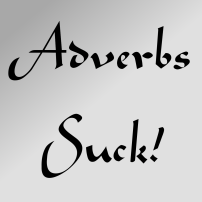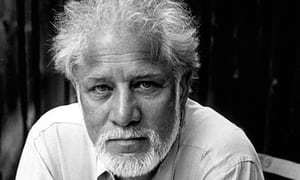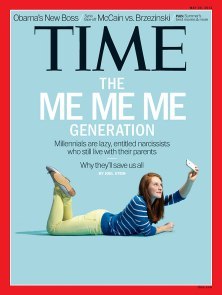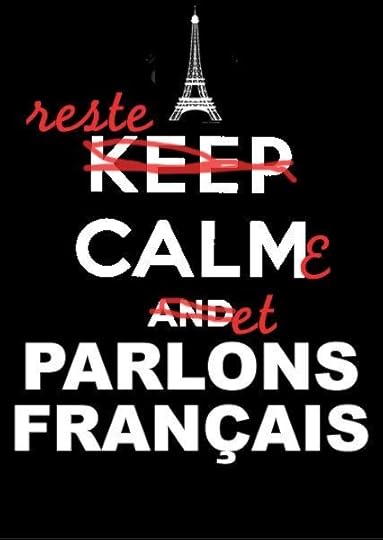Richard Harris's Blog, page 21
September 23, 2017
Adverbs: Persona Non Grata
Even if you’re not a professional writer – even if you don’t write to other human beings very often – you have to read this post from Kathy Steinemann (@KathySteinemann) titled “6 Ways to Reduce “-ly” Adverb Abuse: A Word List for Writers.”
Talk about someone who’s committed to her craft! If you can believe it, Ms. Steinemann makes Stephen King look weak when it comes to the latter’s distaste for adverbs.
This post is no joke and will open your eyes as to how to improve your writing in a relatively simple way. You should definitely read the whole well-researched piece, but her six ways to address/slash and burn adverbs can be summarized as follows:
1. Choose stronger verbs
Instead of Harold walked softly toward the door, try Harold tiptoed toward the door.
2. Analyze adverbs of degree
Instead of saying astonishingly harsh, try abrasive, caustic, or rough.
3. Reject redundant adverbs that modify adjectives
Instead of absolutely catastrophic, badly broken, and relish greatly, try catastrophic, broken and relish, respectively.
4. Delete redundant adverbs that modify verbs
Instead of caress lovingly, try caress.
5. Watch for –ly adjectives (if an -ly word modifies a noun or pronoun, it’s an adjective)
The teenager’s voice was crackly.
The teenager had a crackly voice.
The blow he delivered was deadly.
He delivered a deadly blow.
6. Delete suddenly.
Here are just a few examples of other ways to say the same word:
All at once
All of a sudden
At once
At that moment


September 21, 2017
Stop the Presses! New Ondaatje Novel Due Out in 2018
Per The Associated Press via The New York Times:
Michael Ondaatje (On-DAH-Chay), author of the acclaimed novel “The English Patient,” is once again writing about World War II.
Alfred A. Knopf announced Thursday that Ondaatje’s “Warlight” will come out May 8. The novel is set in London in 1945 and tells of two young siblings who have been separated from their parents in the aftermath of the Nazi bombings. “Warlight” is Ondaatje’s first work of fiction since the 2011 release of “The Cat’s Table.”
Ondaatje’s other books include “In the Skin of a Lion” and “Anil’s Ghost.” He won the Booker Prize for “The English Patient,” a 1992 publication later adapted into an Oscar-winning film of the same name starring Ralph Fiennes, Kristin Scott Thomas and Juliette Binoche.


ME-llennials?
I’m going to let this one stand on its own because @jaredrosen and his “The Millennials Are Getting Worse” is simply well written.
Click on the above link to read the piece in its entirety…


September 20, 2017
Friendship, Aristotle & Books (that espouse Aristotle’s views on friendship)
Simple and straight-to-the-point message above. Me likes.
In a piece titled “How Difficult Is It To Find An Aristotelian Friend?” Gregory Sadler (@philosopher70) exerts quite a bit of energy going through ancient texts, specifically Aristotle’s (or those about the Greek philosopher’s views), to figure out what it takes to develop the fullest sort of friendship. His own piece was inspired, at least in part, by Luciana Siracusano and her article in the Columbia Spectator titled “An Aristotelian friend is hard to find.”
Friendships, like human beings ourselves, have evolved over time. It would have been hard to nurture a pen pal relationship 20,000 years ago when we didn’t have any writing systems, pens, or paper, for example. Just as it would have been impossible for Aristotle to develop a meaningful friendship with kids on Facebook through his non-existent Interweb. (The Greeks only had Ataris, Vic 20s and Commodore 64s.)
For those more cerebrally inclined, do read the above articles, as it’s interesting to note how Team Socrates/Plato/Aristotle pretty much got everything right that they spoke about at length more than two millennia ago.
For me, I was more interested in the literary angle. What are the most enjoyable/enduring books about friendship? If you’re to believe Goodreads, all we need in this world is the complete works of J.K. Rowling. (Here’s the list of their top 459 books on the subject. Alternatively, here’s the Amazon Top 100 Books on Friendship.)
After doing a bit of research and putting my Friendship Cap on to consider this for a bit, I came up with my own list of books on the subject that I can either vouch for personally or trust the source it’s coming from. However, unlike most lists, this is in alphabetical order, so there’s no NUMBER 1 OF ALL-TIME! Just great reads that help us appreciate two of life’s real treasures simultaneously: books and friends.
Adventures of Huckleberry Finn, Mark Twain
Anne of Green Gables, L.M. Montgomery
The Body, Stephen King
Catcher in the Rye, J.D. Salinger
Don Quixote, Miguel de Cervantes Saavedra
My Brilliant Friend, Elena Ferrante
Of Mice and Men, John Steinbeck
Little Women, Louisa May Alcott
The Lord of the Rings, JRR Tolkien
Norwegian Wood, Murakami Haruki
A Separate Peace, John Knowles
Truth & Beauty, Ann Patchett
This list may not be perfect – not even close to fully explored – but at least it offers readers some different options to consider the next time you want to read a book about friendship…that was not written 2,500 years ago.


September 19, 2017
Using Instagram as an Author
With so many social media sites and ways to promote yourself as an author, especially if you’re self-published, it’s hard to know which ones to attack and which ones to avoid. Personally, I like the advice someone once said that went something like this: “Choose one or two that you feel comfortable with and really go after that market.” The truth is that otherwise you will burn out very quickly trying to keep up with SMS Joneses and not even have time to hone your craft.
Should you wish to use Instagram as one of your hallmark sites to amp up your game, here’s a piece from Adrienne Erin (@adrienneerin) over at The Book Designer called “Top 7 Ways Authors Are Using Instagram” that may help you a little.


Book-related/Publishing Job Openings
For the week of Sep. 18-24…
Assistant Category Manager @TNG, the largest periodical wholesaler and distributor of books and magazines in North America. Deadline: Oct. 15, 2017
Assistant to the President & Publisher @Penguin Random House Canada, the juggernaut of global book publishers. Deadline: Sep. 22, 2017
Book Retail Positions @BMV Books, for its new store opening on Queen St. West. Deadline: Oct. 10, 2017


Franzen: ‘Nough Said
Franzen’s ‘Oh, shitfacker’ look. ‘I have to answer this turdball’s question without suffering from road rage? Shoot me in the fact right now, but mind the hair.’
“Reading Jonathan Franzen on form is like watching a baseball star toss a ball, knowing that behind the casual gesture is a virtuoso talent and 10,000 hours of practice.”
– Emma Brockes (@emmabrockes), The Guardian
When I say Jonathan Franzen’s name, I feel like the douchebag from the Viagra ads being run on TV ad nauseam these days. (You know the one where the bald, tone-deaf fashionista dude is waiting for his prescription when he says, “No, no, no, Jean-Luc! I said Viagra!” Then he turns around and goes, “Just saying the name Viagra gets me off. Vi~agra,” he continues in a pseudo-Spanish accent, attempting to imitate a…matador? Who knows. Then the freak-a-zoid goes, “VIAGRA! Viagra for every man, woman and child. Viva Viagra!”)
Anywho, that’s how I feel when saying Franzen’s name out loud. Without the sick, twisted parts, that is. There’s something refreshing about a writer that openly takes on Michiko Kakutani, feels ashamed about his breakthrough/mass coming-out-party novel, uses big words and actually knows what they means, has 9 of 11 road rage signs positively identified after a recent refresher driving test, and abhors social media to the point he feels sorry for young writers today who have to spend more time [INSERT STUPID VERB HERE]-ing than writing creatively.
I was going to make this a Quote of the Day post originally, but realized after reading a great article in The Guardian titled “Jonathan Franzen interview: ‘There is no way to make myself not male’” that I’d throw in a whole bunch of quotes because it’s like every time Franzen opens his mouth some mysterious treasure emerges that makes me like him a little bit more.
Here are a few choice bits from this particular interview, which Ms. Brockes nailed if only because she got so many great sound bites in one sitting:
ON SOCIAL MEDIA
“[I]t feels like a protection racket. Your reputation will be murdered unless you join in this thing that is, in significant part, about murdering reputations…Why would I want to feed that machine?”
ON WRITING
“[W]riting becomes more autobiographical, the less it hews to actual lived experience. The text takes on meaning when you start to depart from experience. Because then it starts to tap into the writer’s nature.”
ON HIS NOVEL THE CORRECTIONS
“I thought I would write for a small audience. And had put all the stuff that was really shameful to me… it’s hard to conceive of now, that I was ashamed of writing a book, deeply ashamed, cripplingly ashamed of writing a book that turned on a mother’s wish to have the family together for Christmas.”
ON BEING LABELLED SEXIST
“I’m not a sexist. I am not somebody who goes around saying men are superior, or that male writers are superior. In fact, I really go out of my way to champion women’s work that I think is not getting enough attention. None of that is ever enough. Because a villain is needed. It’s like there’s no way to make myself not male.”
ON BLOWBACK FOR DISSING OPRAH
“It was a tragic misunderstanding. I blame myself, because I said things that were stupid. And hurt a number of people…I also blame Oprah [for the misunderstanding of his invite to be on her show] because, from our very first conversation, it was clear we were not speaking the same language. I didn’t scream when she called me. I said, ‘Oh, hey.’ And was trying to talk like a media professional to a media professional. And she didn’t know what to do with that.”
ON THE YOUNGER GENERATION
“They [the younger generation] seemed politically not the way they should be as young people. I thought people were supposed to be idealistic and angry. And they seemed kind of cynical and not very angry. At least not in any way that was accessible to me. And part of what journalism is for me is spending time with people who I dislike as a class. But I became very fond of them, and what it did was it cured me of my anger at young people.”
ON TECHNOLOGY AND THE EAST GERMAN STASI
“Technology itself is the Stasi. Technology is the genie out of the bottle. And the Stasi didn’t actually need to do that much. It didn’t arrest that many people. Even with all its resources, it couldn’t do that many full operations. So it counted on people censoring themselves. And controlling their own behaviour for fear of the Stasi, without their needing to lift a finger.”


September 18, 2017
Toronto Winter Island Artist Project Residency 2018
Call for Proposals – Winter Island Artist Residency 2018
Artscape Gibraltar Point (@gibraltarpoint) is seeking project proposals from artists working in all media for the Winter Island Artist-In-Residence program for 2018.
Deadline is 12 p.m. EST on October 10, 2017.
Click here to learn more and to download an application form.


The French “Resistance”
Anything to do with languages gets me hot. Like, really hot. Therefore, I often put on a pair of half-pants and a “sleeve is short shirt” (not a “Y-shirt“!) when reading/talking about man’s greatest invention.
Case in point: a piece from Mark Nichol titled “15 French Words and Phrases That Don’t Mean That in French” courtesy of Daily Writing Tips (@writing_tips) and via @elizabethscraig.
I think my favourite one from this list is the “piece that resists” (piéce de resistance). I’m not really sure why. It’s just funny. And funny things make me laugh.
On a similar note, my brother and I often like to discuss (ad nauseam most times) the bastardization of English in the Korean language (otherwise known more prosaically as “borrowed words” or jokingly as “Konglish”). As seen in the example above, a dress shirt/button-down shirt is now called a “Y-shirt” in (South) Korean (though technically comes via “Janglish”). Why (pun intended)? Who knows.
Other examples include “handphone” (cell phone –> mobile phones go in your hand, right?), “selfka” (selfie –> “self” + “camera”), and “hochikiss” (stapler –> for reasons lost on me, named after the American ordinance engineer Benjamin Hotchkiss, who specialized in developing a revolving barrel machine gun).
When it comes to North Korean Korean (or chosun mal as they call it – “spoken Chosun” (the last Korean dynasty before Japan annexed the Korean Peninsula in 1910), things are, like everything else in that country, different. But I’m going to save that for one another post, assuming the world is not brought to a pile of ashy ashes before then by a certain boy-man leader who wears the finest duds east of the mighty Amrokgang (the Yalu River, as pronounced in North Korean dialect).


September 17, 2017
BookBub: ebook Heaven
If you haven’t heard of BookBub (@BookBub) by now, and you enjoy reading ebooks, you’re doing yourself a serious disservice. In a nutty nutshell, this is what the Bubs is all about:
BookBub is a free service that helps millions of readers discover great deals on acclaimed ebooks while providing publishers and authors with a way to drive sales and find new fans. Members receive a personalized daily email alerting them to the best free and deeply discounted titles matching their interests as selected by our editorial team. BookBub works with all major ebook retailers and devices, and is the industry’s leading ebook price promotion service.
Basically, after signing up and answering some questions about your reading habits, you get an email every day waiting for you in your inbox completely tailored to your literary wants and predilections, offering ebooks at prices that are craaaaaaazy cheap (or free).
Did someone say free and cheap? Yipper, skipper! Go and check out the website today.















